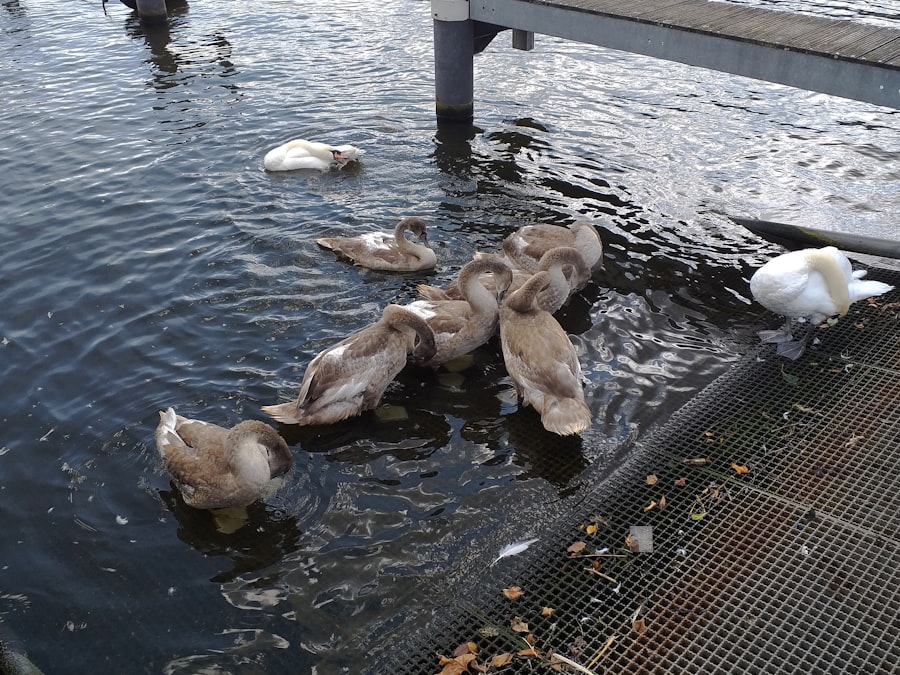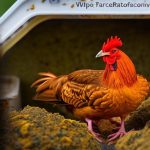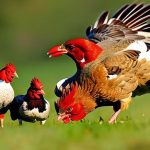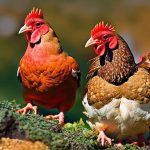Chickens are highly susceptible to heat stress, which can significantly impact their health and well-being. When temperatures rise, chickens may experience decreased feed intake, reduced egg production, and increased mortality rates. Heat stress can also lead to increased water consumption, panting, and lethargy in chickens.
Physiological changes, such as increased heart rate and body temperature, can further exacerbate the effects of heat stress. Understanding these impacts is crucial for poultry farmers to effectively mitigate heat stress and ensure the welfare of their flock. Different chicken breeds have varying levels of heat tolerance.
For instance, Leghorn chickens are generally more heat-tolerant than some other breeds. Recognizing these breed-specific differences allows farmers to tailor their management practices to provide optimal care during periods of high heat. By understanding the impact of heat on chickens and the varying tolerances among breeds, poultry farmers can implement proactive measures to prevent heat stress and its negative consequences on their flock.
Table of Contents
- 1 Providing Adequate Shade and Ventilation
- 2 Offering Cool and Refreshing Water
- 3 Using Cooling Techniques and Equipment
- 4 Modifying Feeding and Foraging Patterns
- 5 Monitoring and Managing Heat Stress
- 6 Seeking Veterinary Advice and Support
- 7 FAQs
- 7.1 What are some signs that my chickens are overheated?
- 7.2 How can I keep my chickens cool in hot weather?
- 7.3 What are some ways to provide shade for my chickens?
- 7.4 How often should I change my chickens’ water in hot weather?
- 7.5 Are there specific breeds of chickens that are more heat-tolerant?
Key Takeaways
- Heat stress can have a significant impact on chickens, leading to decreased egg production, poor growth, and even mortality.
- Providing adequate shade and ventilation in the chicken coop is essential to help chickens cope with high temperatures.
- Offering cool and refreshing water is crucial to keep chickens hydrated and regulate their body temperature during hot weather.
- Using cooling techniques and equipment such as misters, fans, and evaporative cooling pads can help lower the temperature in the chicken coop.
- Modifying feeding and foraging patterns by offering cool treats and adjusting feeding times can help reduce heat stress in chickens.
- Regularly monitoring and managing heat stress in chickens is important to prevent health issues and ensure their well-being.
- Seeking veterinary advice and support is crucial if chickens show signs of severe heat stress or if there are concerns about their health during hot weather.
Providing Adequate Shade and Ventilation
Ensuring Proper Ventilation and Shade
One of the most important steps in preventing heat stress in chickens is to provide adequate shade and ventilation in their living environment. This can be achieved by ensuring that the chicken coop or housing area is well-ventilated and has sufficient airflow to help dissipate heat. Additionally, providing shade in the form of trees, awnings, or other structures can help protect chickens from direct sunlight and reduce the ambient temperature in their living space.
Minimizing the Risk of Heat Stress
By creating a cooler and more comfortable environment for chickens, farmers can help minimize the risk of heat stress and its associated negative effects. Moreover, it is essential to consider the orientation of the chicken coop or housing area in relation to the sun. Placing the coop in a location that minimizes direct exposure to the sun during the hottest parts of the day can help reduce the risk of heat stress in chickens.
Using Reflective Materials to Reduce Heat Absorption
Additionally, using reflective materials on the roof or walls of the coop can help deflect sunlight and further reduce heat absorption. By providing adequate shade and ventilation, poultry farmers can create a more comfortable living environment for their chickens and help mitigate the impact of high temperatures on their flock.
Offering Cool and Refreshing Water
Another crucial aspect of preventing heat stress in chickens is to ensure that they have access to cool and refreshing water at all times. During periods of high heat, chickens will increase their water consumption as a means of regulating their body temperature and staying hydrated. Therefore, it is essential for farmers to regularly check and refill water sources to ensure that chickens have an ample supply of clean and cool water.
Additionally, placing water sources in shaded areas can help keep the water temperature lower and more appealing to chickens. Furthermore, farmers can consider adding ice or frozen water bottles to the chickens’ water sources to help keep the water cool throughout the day. This can be particularly beneficial during extreme heat waves when temperatures remain high for extended periods.
By offering cool and refreshing water, poultry farmers can help chickens stay hydrated and better equipped to cope with high temperatures, reducing the risk of heat stress and its negative effects on their health and productivity.
Using Cooling Techniques and Equipment
In addition to providing shade and cool water, there are various cooling techniques and equipment that poultry farmers can use to help mitigate the impact of heat on their chickens. One effective method is to use misting systems or fans to create a cooling effect in the chicken coop or housing area. Misting systems can help lower the ambient temperature by spraying a fine mist of water into the air, while fans can help improve airflow and dissipate heat.
These cooling techniques can be particularly beneficial during periods of extreme heat when natural ventilation may not be sufficient to keep chickens comfortable. Moreover, farmers can also consider using evaporative cooling pads or air conditioning systems in chicken housing facilities to maintain a cooler environment for their flock. These systems work by drawing warm air through wet pads or using refrigeration to lower the temperature, creating a more comfortable living space for chickens.
While these cooling techniques may require an initial investment, they can be highly effective in preventing heat stress and its negative consequences on chicken health and productivity.
Modifying Feeding and Foraging Patterns
During periods of high heat, it is important for poultry farmers to modify feeding and foraging patterns to help reduce the risk of heat stress in chickens. One approach is to adjust feeding times to cooler parts of the day, such as early morning or late evening, when temperatures are lower. This can help encourage chickens to eat when they are more comfortable and reduce the risk of decreased feed intake due to heat stress.
Additionally, providing smaller, more frequent meals throughout the day can help prevent overeating during hot weather, as chickens may be less inclined to eat large meals when they are feeling overheated. Furthermore, farmers can consider supplementing chickens’ diets with electrolytes or vitamins to help support their health and hydration during periods of high heat. Electrolytes can help replenish essential minerals lost through increased water consumption and panting, while vitamins can support overall health and immune function in chickens.
By modifying feeding and foraging patterns and providing additional nutritional support, poultry farmers can help mitigate the impact of heat stress on their flock and ensure their well-being during hot weather.
Monitoring and Managing Heat Stress

Identifying Early Signs of Heat Stress
Regular monitoring of the flock is crucial to identify early signs of heat stress. Farmers should keep a close eye on their chickens for symptoms such as panting, lethargy, decreased feed intake, or reduced egg production. By doing so, they can intervene early and prevent heat stress from becoming a more serious issue. Monitoring environmental conditions like temperature and humidity levels can also provide valuable insights into the potential risk of heat stress for chickens.
Proactive Management Practices
When signs of heat stress are observed, farmers can implement various management practices to mitigate its effects. These may include providing additional shade or ventilation, adjusting feeding times, or using cooling techniques. By taking proactive measures, farmers can prevent the negative consequences of heat stress on chicken health and productivity.
Ensuring Chicken Welfare
By closely monitoring their flock and implementing appropriate management practices, poultry farmers can effectively mitigate the impact of heat stress on their chickens. This ensures the welfare of the chickens during periods of high temperatures, which is essential for maintaining a healthy and productive flock.
Seeking Veterinary Advice and Support
In cases where heat stress has a significant impact on chicken health and well-being, it is important for poultry farmers to seek veterinary advice and support. Veterinarians with expertise in poultry health can provide valuable guidance on managing heat stress and its effects on chickens. They can offer recommendations for specific management practices, nutritional support, or medical interventions that may be necessary to address heat-related health issues in chickens.
Furthermore, veterinarians can help poultry farmers develop a proactive plan for preventing heat stress in their flock, including recommendations for housing design, ventilation systems, cooling techniques, and nutritional management. By seeking veterinary advice and support, poultry farmers can access valuable expertise and resources to help them effectively manage heat stress and ensure the welfare of their flock during periods of high temperatures. In conclusion, understanding the impact of heat on chickens is crucial for poultry farmers to effectively mitigate its effects and ensure the welfare of their flock.
By providing adequate shade and ventilation, offering cool and refreshing water, using cooling techniques and equipment, modifying feeding and foraging patterns, monitoring and managing heat stress, and seeking veterinary advice and support when necessary, farmers can take proactive measures to prevent heat stress in their flock. By implementing these strategies, poultry farmers can help ensure that their chickens remain healthy and productive even during periods of high temperatures.
If you’re looking for more tips on keeping your chickens cool in the heat, you might want to check out this article on using a trampoline in your chicken coop here. It offers a unique and creative solution to providing shade and ventilation for your feathered friends during hot summer days.
FAQs
What are some signs that my chickens are overheated?
Some signs that your chickens may be overheated include panting, holding their wings away from their bodies, reduced egg production, and lethargy.
How can I keep my chickens cool in hot weather?
You can keep your chickens cool in hot weather by providing plenty of shade, ensuring they have access to fresh, cool water at all times, and using fans or misters to lower the temperature in their coop or run.
What are some ways to provide shade for my chickens?
You can provide shade for your chickens by using natural shade from trees or shrubs, setting up tarps or shade cloths over their coop or run, or creating a covered area with a roof or awning.
How often should I change my chickens’ water in hot weather?
In hot weather, you should change your chickens’ water at least once a day to ensure it stays cool and fresh. If the temperature is extremely high, you may need to change it more frequently.
Are there specific breeds of chickens that are more heat-tolerant?
Yes, some breeds of chickens are more heat-tolerant than others. Breeds such as Leghorns, Rhode Island Reds, and Sussex are known for their ability to handle hot weather better than breeds with heavier, denser feathers.
Meet Walter, the feathered-friend fanatic of Florida! Nestled in the sunshine state, Walter struts through life with his feathered companions, clucking his way to happiness. With a coop that’s fancier than a five-star hotel, he’s the Don Juan of the chicken world. When he’s not teaching his hens to do the cha-cha, you’ll find him in a heated debate with his prized rooster, Sir Clucks-a-Lot. Walter’s poultry passion is no yolk; he’s the sunny-side-up guy you never knew you needed in your flock of friends!







